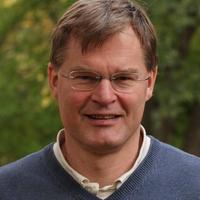FractAl
FractAl

The Toppforsk project FractAl deals with microstructure-based modelling of ductile fracture in aluminium alloys. The project started in August 2016 and lasts for 5 years. Department of Structural Engineering at NTNU is the basecamp, where 4 PhD candidates and 2 postdocs work together with a core team of scientists. Two scientists from KTH in Stockholm and ENS de Cachan in Paris also take part in the project.
In the design of aluminium structures against failure, the material’s strength and ductility are important factors. To design lightweight structures it is often necessary to use high strength aluminium alloys, while taking advantage of ductility in full. For aluminium alloys, increased strength often comes at the expense of ductility of the material. This can increase the risk of structural failure. Therefore, it is important to have good models for ductility of aluminium alloys under different load situations.
In FractAl we will develop and validate a new microstructure-based modelling framework for ductile fracture in aluminium alloys. It involves modelling and simulation at multiple scales and customized laboratory experiments.
Besides building a basic understanding of ductile fracture in aluminum alloys, the modelling framework enables designers and engineers to select the most suitable aluminum alloy for a given structure with less time-consuming and costly mechanical tests. The framework can also be used to tailor alloys with ideal strength and ductility of a given structure. This could pave the way for a completely new way to design aluminium structures.
FractAl workshop: «Topics in ductile fracture»
The workshop «Topics in ductile fracture» was hosted by the Toppforsk-project FractAl in Trondheim on October 17-18, 2018. Of the 21 participants, eight were invited scientists from abroad, all renowned researchers within the field of ductile fracture.
The workshop comprised 15 scientific presentations with contributions from the invited scientists as well as PhD candidates, post doctors and scientists from FractAl and CASA, see the workshop programme.

Personnel
-
Tore Børvik Professor
+47-73594647 +4793059462 tore.borvik@ntnu.no Department of Structural Engineering -
Lars Edvard Blystad Dæhli Associate Professor
+47-73594659 +4747373883 lars.e.dahli@ntnu.no Department of Structural Engineering -
Asle Joachim Tomstad
aslejt@hotmail.com Department of Structural Engineering


 Jonas Faleskog
Jonas Faleskog